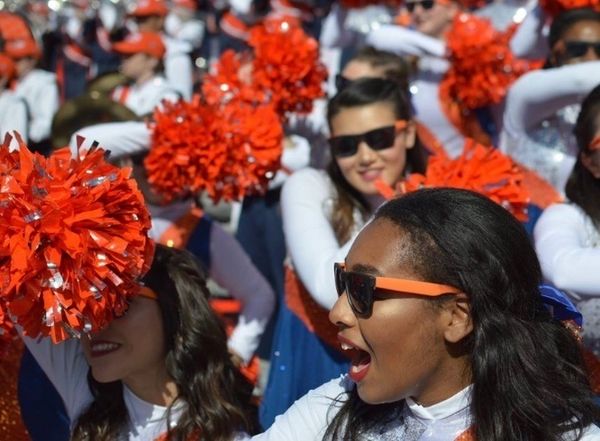On Wednesday, May 23rd, the NFL announced the implementation of a new policy requiring that "All team and league personnel on the field shall stand and show respect for the flag and the [National] Anthem."
Although the policy includes a provision that "Personnel who choose not to stand for the Anthem may stay in the locker room or in a similar location off the field until after the Anthem has been performed," I can't help but notice the parallels between this policy and Canada's Bill C-16 (which is what drew international attention to Dr. Jordan Peterson), due to the enforced speech ensconced in their mere existence.
Of course, I understand that one is a government entity and the other is a professional sports league and, in my opinion, enforced speech from a government entity tiptoes the boundary of tyranny much more closely than a professional sports league. However, what's important here is the principle of the matter. Not to mention that the NFL isn't exactly disconnected from the government since it receives billions in taxpayer subsidies.
Furthermore, I'm also aware that Bill C-16 enforces its citizens to use certain speech and the new policy from the NFL prevents its members from using certain speech, and that there is a difference between the two, strictly speaking. But enforced speech encompasses both compelling certain speech and silencing certain speech.
Presumably, most people who are supporting the NFL's decision were outraged over Google firing James Damore for his memo regarding diversity at Google, Mozilla firing Brendan Eich for donating to a traditional marriage campaign in California and ESPN firing Curt Schilling due to his views on transwomen using the same bathroom as his daughter.
If we, as conservatives, are going to have any semblance of intellectual consistency in our beliefs, then we have to condemn the silencing and firing of those who have different political views than us with the same tenacity that we condemn the silencing and firing of those who have similar political views as us.
This is not to say that behavior we disagree with shouldn't be subjected to criticism, but we cannot support measures that suppress the expression of those we disagree with if we simultaneously take up arms against the suppression of our expression.
The arena of professional sports is a unique case when it comes to these matters because, while on one hand, the NFL is a private entity, its players are all public figures. The field is their platform. And expressing their beliefs, as public figures, on their platform shouldn't be a point of regulation, especially since that expression surrounds something that doesn't pertain to their team or the NFL.
As a body of individuals who want to take on the role of Defenders of the First Amendment, we have to understand that our defense of the First Amendment doesn't end with those we agree with, but with those we disagree with the most.
Which is why this provision from the NFL should feel like a slap in the face to those of us who hold the First Amendment in the highest regards, and shouldn't be a cause for celebration.



















